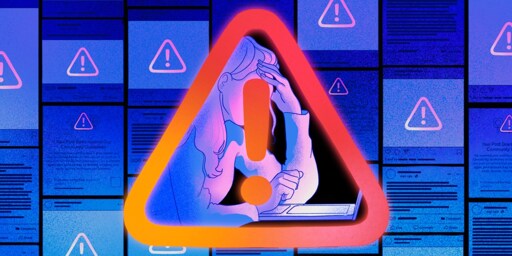

the sense that the entire world is on fire
Leaving aside the massive literal heatwave and multi-state wildfires and global-warming-accelerated flooding happening just this month and all… we’re literally seeing a campaign of race-based kidnappings and trafficking by the government, the deployment of active duty military personnel in the streets, and a DOJ arguing that the President is not bound by law or court orders.
If you don’t think the world is on at very least metaphorical fire, I don’t know what to tell you, Guardian author. “I can get my coffee in peace without thinking about that stuff” is not some brag.























How to fix youtube: